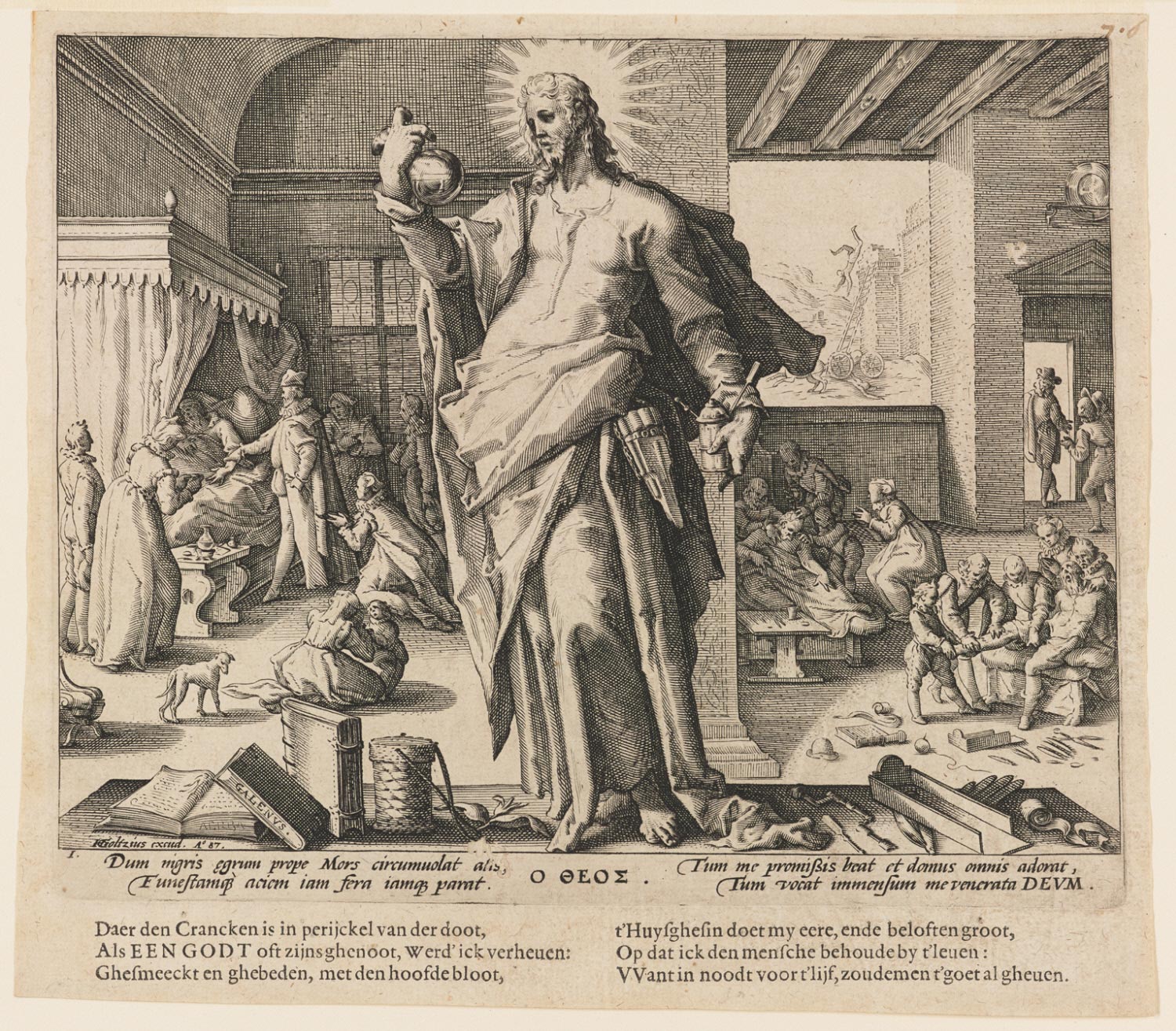Jul 3, 2020
Reforming Medicine, ca. 1500-1700: Introduction
- 14:00 to 16:00
- Virtual Working Group
- Max Planck Research Group (Premodern Sciences)
- Several Speakers
- Christoph Lüthy
- Michael Edwards
- Davide Cellamare

Hendrick Goltzius, In the Beginning When the Physician is Needed, He is Considered the Equal of God the Saviour, Plate 1 from the series Allegories of the Medical Profession (1587)
In his Religio Medici (1642), the English physician Thomas Browne called the popular proverb, “ubi tres medici, duo athei” (where there are three doctors, there are two atheists), the “general scandal of [his] profession.” Concerns that medical knowledge and practice could lead to skepticism about unobservable causes, and worse, to materialism, heretical beliefs, and atheism, were widespread in late medieval and early modern medical and medico-religious circles, but especially during the reformations of anatomy and medicine in the sixteenth and seventeenth centuries.
This working group invites scholars to reflect on the relationships between projects and practices of reforming Christianity and the developments in academic medicine (both theoretical and practical) and non-university medical training, accreditation, and practice between 1500 and 1700.
Contact and Registration
Please email Julia Reed at jreed@mpiwg-berlin.mpg.de if you would like to join us via Zoom and receive copies of the pre-circulated papers. Papers and links to the Zoom meetings will be sent out one week before each meeting.
